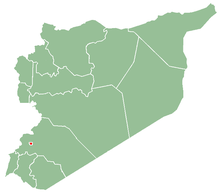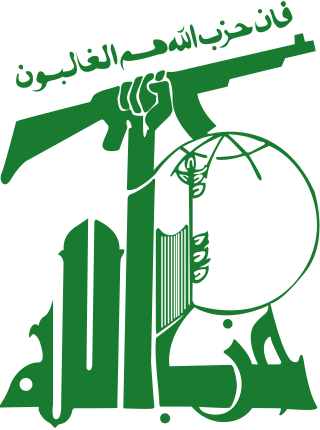
Hezbollah is a Lebanese Shia Islamist political party and militant group, led since 1992 by its Secretary-General Hassan Nasrallah. Hezbollah's paramilitary wing is the Jihad Council, and its political wing is the Loyalty to the Resistance Bloc party in the Lebanese Parliament.

Ansar al-Islam in Kurdistan, simply called Ansar al-Islam, is a Kurdish Islamist militant and separatist group. It was established in northern Iraq around the Kurdistan Region by Kurdish Islamists who were former Taliban and former Al-Qaeda volunteers, which were coming back from Afghanistan in 2001 after the Fall of Kabul. Its motive is to establish an Islamic state around the Kurdistan region and to protect Kurdish people from other armed insurgent groups. It imposed strict Sharia in villages it controlled around Byara near the Iranian border.
State-sponsored terrorism is terrorist violence carried out with the active support of national governments provided to violent non-state actors. States can sponsor terrorist groups in several ways, including but not limited to funding terrorist organizations, providing training, supplying weapons, providing other logistical and intelligence assistance, and hosting groups within their borders. Because of the pejorative nature of the word, the identification of particular examples are often subject to political dispute and different definitions of terrorism.
Islamic terrorism refers to terrorist acts with religious motivations carried out by fundamentalist militant Islamists and Islamic extremists.
Terrorism in Syria has a long history dating from the state-terrorism deployed by the Ba'athist government since its seizure of power through a violent coup in 1963. The Ba'athist government have since deployed various types of state terrorism; such as ethnic cleansing, forced deportations, massacres, summary executions, mass rapes and other forms of violence to maintain its totalitarian rule in Syria. The most extensive use of state terrorism in the 20th century was during 1970s and 1980s, when Islamic uprisings across Syria where crushed through bloody campaigns of intense repression, culminating in the 1982 Hama massacre which killed around 40,000 civilians.
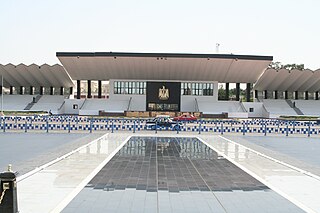
Terrorism in Egypt in the 20th and 21st centuries has targeted the Egyptian government officials, Egyptian police and Egyptian army members, tourists, Sufi Mosques and the Christian minority. Many attacks have been linked to Islamic extremism, and terrorism increased in the 1990s when the Islamist movement al-Gama'a al-Islamiyya targeted high-level political leaders and killed hundreds – including civilians – in its pursuit of implementing traditional Sharia law in Egypt.
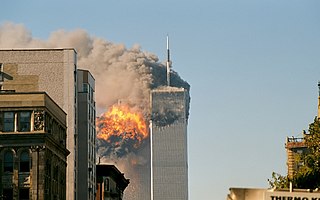
A suicide attack is a deliberate attack in which the perpetrators knowingly sacrifice their own lives as part of the attack. These attacks are often associated with terrorism or military conflicts and are considered a form of murder–suicide. Suicide attacks involving explosives are commonly referred to as suicide bombings. In the context of terrorism, they are also commonly referred to as suicide terrorism. While generally not inherently regulated under international law, suicide attacks in their execution often violate international laws of war, such as prohibitions against perfidy or targeting civilians.
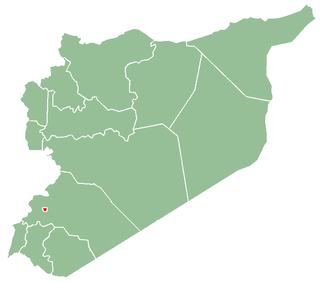
The 2008 Damascus car bombing was a car bombing that occurred on 27 September 2008 in the Syrian capital of Damascus. The explosion left 17 people dead and 14 injured. A car, laden with 200 kilograms of explosives detonated in the Sidi Kadad suburb of the capital, at approximately 8:45am. The blast occurred roughly 100 metres from a security installation on the road to Damascus International Airport at an intersection leading to the Sayyidah Zaynab Mosque, popular with Shia pilgrims from Iran and Lebanon. Security forces cordoned off the area.

The Abdullah Azzam Brigades, or al-Qaeda in Lebanon, is a Sunni Islamist militant group, and al-Qaeda's branch in Lebanon. The group, which began operating in 2009, was founded by Saudi Saleh Al-Qaraawi and has networks in various countries, mainly in Egypt, Iraq, Syria, Jordan, the Gaza Strip and Lebanon.
On 23 December 2011, two seemingly coordinated bombings occurred in the Syrian capital of Damascus. The alleged suicide car bombs exploded outside Syrian military intelligence agency buildings, killing 44 people and injuring 166. According to Syrian state media, most of the dead were civilians. The attacks took place during the Syrian uprising. The Syrian government blamed Islamist militants, while the Syrian opposition accused the government of staging the attacks to justify its crackdown on the uprising.
On 6 January 2012, a bomb exploded in the Al-Midan district of Damascus, Syria. According to the Syrian government, a suicide bomber attacked buses carrying riot police shortly before an anti-government protest was to begin. It said that 26 people were killed and over 60 were injured. Most of the victims were civilians, though the Syrian government showed footage of what it claimed to be the funeral of 11 police officers killed in the attack.

Al-Nusra Front, also known as Front for the Conquest of the Levant, was a Salafi jihadist organization fighting against Syrian Ba'athist government forces in the Syrian Civil War. Its aim was to overthrow president Bashar al-Assad and establish an Islamic state in Syria.
The 10 May 2012 Damascus bombings were carried out using a pair of car bombs allegedly detonated by suicide bombers outside a military intelligence complex in Damascus, Syria. Combined, the perpetrators detonated more than 1,000 kilograms (2,200 lb) of explosives, tearing the facade off a 10-story building. With 55 people confirmed dead and almost 400 others injured, the attack was the deadliest bombing to date in the Syrian Civil War, though later outpaced by other events.
On December 15, 1981, the Iraqi Shi'a Islamist group al-Dawa carried out a suicide car bombing targeting the Iraqi embassy in Beirut, Lebanon. The explosion leveled the embassy and killed 61 people, including Iraq's ambassador to Lebanon, and injured at least 100 others.
There has been an increase in incidents involving alleged radical Islamism in the Balkans since the 1990s.

Islamic terrorism in Europe has been carried out by the Islamic State (ISIL) or Al-Qaeda as well as Islamist lone wolves since the late 20th century. Europol, which releases the annual EU Terrorism Situation and Trend report (TE-SAT), used the term "Islamist terrorism" in the years 2006–2010, "religiously inspired terrorism" 2011–2014, and has used "jihadist terrorism" since 2015. Europol defines jihadism as "a violent ideology exploiting traditional Islamic concepts".
This article covers attacks and activity of terrorism in Belgium.
